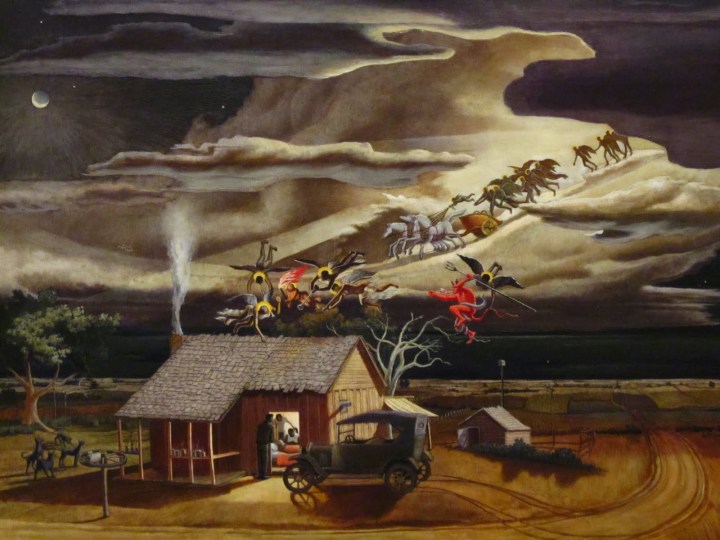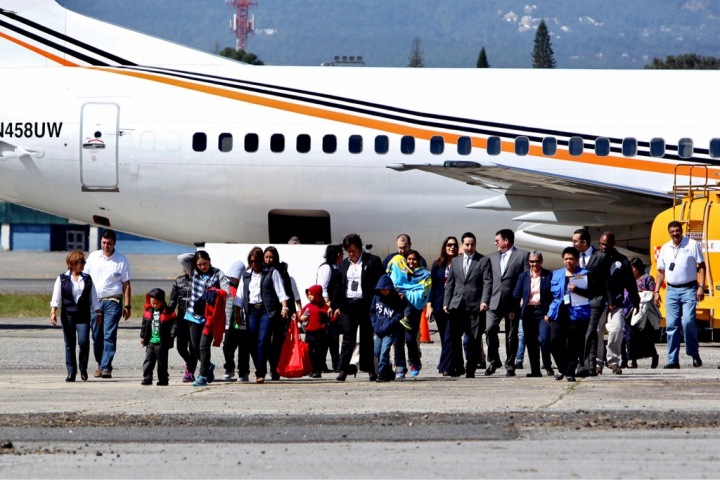The last couple of months have been really busy for me: I received my formal letter of entrance into the Marist International Novitiate in Davao, Philippines; I premiered a new chamber composition at Georgetown University; I’ve been preparing for comprehensive exams and working on my master’s thesis in composition; I , along with the Radiant Obscurity Collective, released a new album. All the while, I continue in Marist community life, and in hospice and music ministry. The late nights, anxiety about passing comps, anxiety about taking another step forward in religious life (oh, and of moving to a new continent in a month), and absorption in writing a piece of music that I feel is really important — all of these things took a toll on my life of prayer. Through the grace of God, all of these things have also taught me about the centrality of holistic worship in the Christian life, making me realize how much I long for prayer, even when I can’t seem to get out of my own way when I try to pray.
Even in religious life, prayer is hard
I’ve often had friends come and visit me at Marist College here in Washington, DC, and invariably they make some comment about how amazing it is to be able to just walk downstairs in the morning and celebrate Eucharist with the community, how incredible it is to live with the Blessed Sacrament, how awesome it is that a community would gather to pray the Liturgy of the Hours. And they’re absolutely right; all of those things are amazing. What I often think is not understood, however, is that the challenges and obstacles of prayer exist even here. I remember once, when I was spending a few days at a Trappist monastery, I went for a walk while praying a rosary. In the woods, I ran into a fellow not much older than I who was working in the woods. Though we had seen each other around the monastery in the preceding days, we hadn’t broken silence to talk. Now, though, we exchanged a few words. He was a postulant with the Trappists and was in his first month at the monastery and he said something like, “You would think that living in a monastery would make prayer easy … after all, that’s the life. But once you account for the manual labor, the fatigue that comes with gathering together to pray the office several times a day, and the community obligations, there isn’t that much time for personal prayer, and what time is left is usually filled with distractions or fatigue.” I smiled and nodded. I’m not a monk, but my experience is similar.

Writing music is a consuming experience. Stumbling upon the right musical idea is exhilarating and it literally fills me with awe. Working through all the wrong ideas that come before the right one is emotionally taxing — I frequently find myself pacing, beating piano keys as hard as I can, trying to get to the right idea. Then, once the idea is there in the mind, the process of transferring it to paper is exceedingly difficult, because paper is an inherently limited medium and there’s a lot of doubt about whether the thing you put on paper is a remotely accurate representation of the sonic idea in your mind. It’s a process that haunts me in my dreams, let alone at Mass or at times when I’m supposed to be in prayer. The times for prayer come and go and I realize that, whether it was music or something else, I often have never actually entered into genuine prayer.
Rabbi Abraham Joshua Heschel refers to a phenomenon like this as “The Sigh” in his book Man’s Quest for God:
About a hundred years ago, Rabbi Isaac Meir Alter of Ger pondered over the question of what a certain shoemaker of his acquaintance should do about his morning prayer. His customers were poor men who owned only one pair of shoes. The shoemaker used to pick up their shoes at a late evening hour, work on them all night and part of the morning, in order to deliver them before their owners had to go to work. When should the shoemaker say his morning prayer? Should he pray quickly the first thing in the morning, and then go back to work? Or should he let the appointed hour of prayer go by and, every once in a while, raising his hammer from the shoes, utter a sigh: ‘Woe unto me, I haven’t prayer yet!’? Perhaps that sigh is worth more than prayer itself.
It doesn’t matter whether we’re a shoemaker or a musician, whether we’re single, married, or in consecrated life … genuine prayer seems to elude us most of our moments and days, and we’re left simply uttering that sigh: “Woe unto me, I haven’t prayed yet.”
The problem of prayer
Rabbi Heschel goes on to say that, “We do not refuse to pray; we abstain from it. We ring the hollow bell of selfishness rather than absorb the stillness that surrounds the world, hovering over all the restlessness and fear of life — the secret stillness that precedes our birth and succeeds our death.” I struggle to pray because I struggle to leave behind my own self-assertion; I struggle to pray because I allow my fears, my concerns, my work, my self to draw my mind and heart away from the God who simply is, the God who creates and holds together all of creation in constant, unfailing love. Rabbi Heschel explains our problem:
To pray is to take notice of the wonder, to regain a sense of the mystery that animates all beings, the divine margin in all attainments. Prayer is our humble answer to the inconceivable surprise of living. It is all we can offer in return for the mystery by which we life. Who is worthy to be present at the constant unfolding of time? Amidst the meditation of mountains, the humility of flowers — wiser than all alphabets — clouds that die constantly for the sake of His glory, we are hating, hunting, hurting. Suddenly we feel ashamed of our clashes and complaints in the face of the tacit glory in nature. It is so embarrassing to live! How strange we are in the world, and how presumptuous our doings! Only one response can maintain us: gratefulness for witnessing the wonder, for the gift of our unearned right to serve, to adore, to fulfill. It is gratefulness which makes the soul great.
However, we often lack the strength to be grateful, the courage to answer, the ability to pray. To escape from the mean and penurious, from calculating and scheming, is at times the parching desire of man. Tired of discord, he longs to escape from his own mind — and for the peace of prayer … But how can man draw song out of his heart if his consciousness is a woeful turmoil of fear and ambition? He has nothing to offer but disgust, and the weariness of wasting the soul …
Trembling in the realization that we are a blend of modesty and insolence, of self-denial and bias, we beseech God for rescue, for help in the control of our thoughts, words, and deeds. We lay all our forces before Him. Prayer is arrival at the border. The dominion is Thine. Take away from me all that may not enter Thy realm.
To pray is to forget ourselves and return to wonder at the presence and love of God. But to come to this place is impossible for any one of us: how could we possibly let go of our fears, thoughts, anger, or ambition? How can we, who are selves, let go of our own subjectivity? It is impossible for us, but “the Spirit helps us in our weakness; for we do not know how to pray as we ought, but the Spirit himself intercedes for us with sighs too deep for words” (Romans 8:26). Our plaintive sigh, our sorrow for being unable to escape ourselves in order to open our hearts to God, that sigh is taken up by the Spirit who begins the work of prayer in us.

A return to worship
When I was a little younger, I used to think that spiritual discipline would help me to pray. In some ways it did, but mostly it didn’t. Having a set time for prayer is good, but it also can be something that plays into our ego: setting disciplines for ourselves and then meeting them can make us think that prayer is our work, and that we’re getting “good” at it. Such a spirit contradicts the very heart of prayer, which is, at its core, an opening of the heart to God. So, how can we learn to live in a way that supports an openness towards God? I think that a fundamental view of life as worship can help us to be open to receive the gift of prayer. It also requires us make a distinction between Catholic and Protestant theologies of worship and recognize the ways in which they are both true.
For Catholics, worship is something that is initiated by God. The Eucharist, the “source and summit” of the Christian life, comes to us from God. When we celebrate the Eucharist on earth, we participate in the heavenly liturgy portrayed in Hebrews and Revelation — not in a symbolic way, but in a real way. We are, for a brief moment, actually worshipping with the communion of saints and angels, with all of humanity, at the heavenly banquet. This should fill us with awe. Liturgy isn’t about us, and it doesn’t come from us — it’s source is in God, and we are simply participants.
For many Protestants, worship is something that arises from the community of believers. When we gather together, God is present among us, and worship is what we do to praise God, to express our gratitude, to present our prayers of supplication, to give concrete and communal expression to our experience of God. In short, worship is our response to the love that God has shown to us.
Both of these theologies of worship are true. As a Catholic, I obviously believe that the sacraments and the liturgy are things that are initiated by God, and given to us for our participation while on earth. They are beyond us. But I also know that worship isn’t limited to liturgy, and that, with the grace of God, we can choose to live a life of worship. To quote Rabbi Heschel again:
To worship is to rise to a higher level of existence, to see the world from the point of view of God. In worship we discover that the ultimate way is not to have a symbol, but to be a symbol, to stand for the divine. The ultimate way is to sanctify thoughts, to sanctify time, to consecrate words, to hallow deeds. The study of the word of God is an example of the sanctification of thought; the Seventh Day is an example of the sanctification of time; prayer is an example of the consecration of words; observance is an example of the hallowing of deeds.
In a certain way, I can’t choose to pray, but I can choose to worship. I don’t have real control over my thoughts and feelings; feeling fear about the upcoming novitiate, being distracted by musical ideas, being anxious about comps or finishing a thesis … these things are a reality, and they keep me from prayer. Only if God sees fit to lift me out of them (and to lift me out of myself) can I be free from them. But I do have at least some control over worship. I can choose to consecrate time by giving it to God; I can choose to read Scripture or to say prayers; I can choose to try and live in a way that sows peace and love among others; I can choose to try and pray. I can choose to at least try and live a life of worship, but I can’t make it succeed. That depends on God alone. And in realizing that, I realize the depths of my poverty and helplessness, and I can begin to utter that sigh that may be worth more than prayer itself.


























